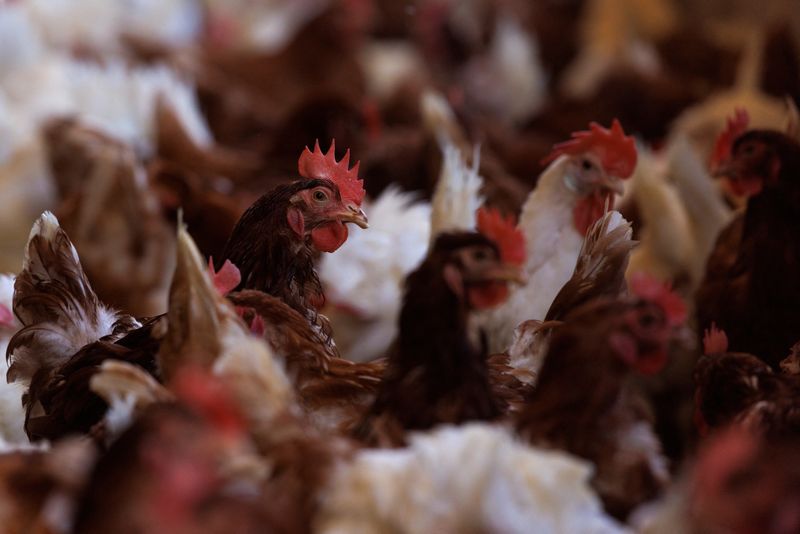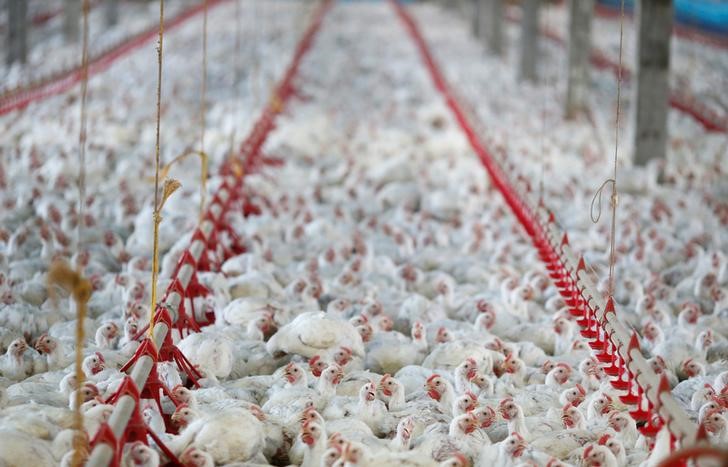By Tom Polansek
CHICAGO (Reuters) -Avian flu has wiped out 50.54 million birds in the United States this year, making it the country's deadliest outbreak in history, U.S. Department of Agriculture data showed on Thursday.
The deaths of chickens, turkeys and other birds represent the worst U.S. animal-health disaster to date, topping the previous record of 50.5 million birds that died in an avian-flu outbreak in 2015.
Birds often die after becoming infected. Entire flocks, which can top a million birds at egg-laying chicken farms, are also culled to control the spread of the disease after a bird tests positive.
Losses of poultry flocks sent prices for eggs and turkey meat to record highs, worsening economic pain for consumers facing red-hot inflation and making Thursday's Thanksgiving celebrations more expensive in the United States. Europe and Britain are also suffering their worst avian-flu crises, and some British supermarkets rationed customers' egg purchases after the outbreak disrupted supplies.
The U.S. outbreak, which began in February, infected flocks of poultry and non-poultry birds across 46 states, USDA data show. Wild birds like ducks transmit the virus, known as highly pathogenic avian influenza (HPAI), through their feces, feathers or direct contact with poultry.
"Wild birds continue to spread HPAI throughout the country as they migrate, so preventing contact between domestic flocks and wild birds is critical to protecting U.S. poultry," said Rosemary Sifford, the USDA's chief veterinary officer.
Farmers struggled to keep the disease and wild birds out of their barns after increasing security and cleaning measures following the 2015 outbreak. In 2015, about 30% of the cases were traced directly to wild bird origins, compared to 85% this year, the USDA told Reuters.

Government officials are studying infections at turkey farms, in particular, in hopes of developing new recommendations for preventing infections. Turkey farms account for more than 70% of the commercial poultry farms infected in the outbreak, the USDA said.
People should avoid unprotected contact birds that look sick or have died, though the outbreak poses a low risk to the general public, the U.S. Centers for Disease Control and Prevention said.
